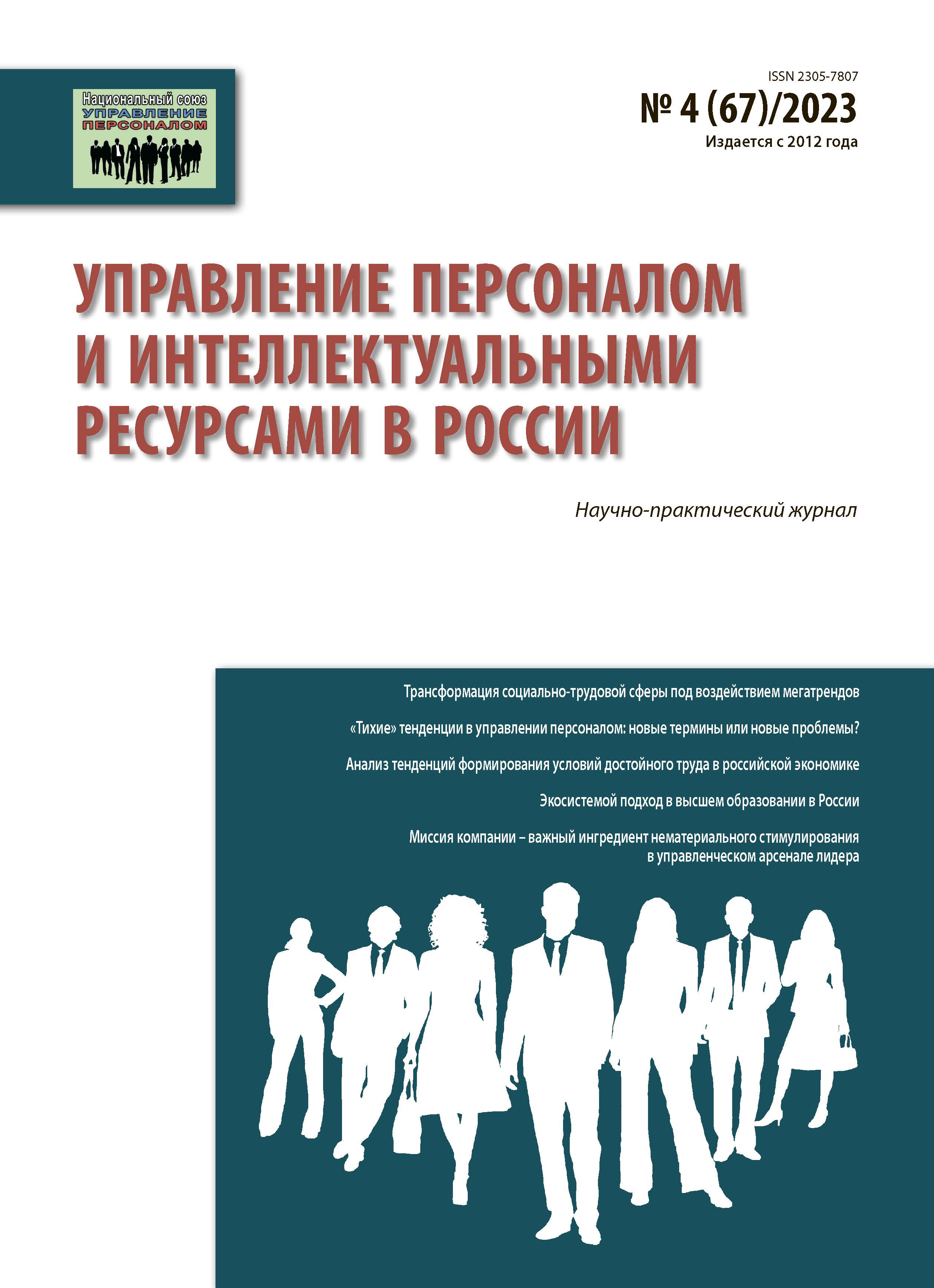Russian Federation
Russian Federation
In the modern world, the successful development of any enterprise in any field depends on a number of factors, including the creation of a favorable corporate culture. Corporate culture is becoming an increasingly important aspect of doing business today. In this regard, the formation of a common vision of goals and objectives, a single strategy and sustainable values, which must be implemented at all levels and management structures, are of fundamental importance. The article focuses on the fact that in modern conditions, the process of forming an effective corporate culture is associated with three important elements: external and internal HR-brand and social policy. The internal HR brand is a certain set of tools with which the strategy of staff retention and development is implemented, thereby developing employee loyalty. An internal HR brand is a powerful tool for creating and strengthening ties between employees and the employer, as well as ensuring their commitment to the company. In turn, an external HR brand is a set of activities aimed at attracting new personnel and strengthening the company's image in the external labor market, since it affects the perception of the company by potential employees and partners. Also, an equally important element of corporate culture is the social policy of the enterprise, which is aimed at improving working conditions and improving the quality of life of employees. Social policy includes elements such as bonuses, benefits and other programs that are aimed at showing the company's concern for its employees and creating a positive image. All these factors together give uniqueness to the corporate culture of the enterprise and influence its success in the long term.
corporate culture, external HR brand, internal HR brand, social policy, staff, employer
1. Akoff R. L. Planning the future of the corporation / Translated from English - M.: Sirin, 2002. - 256 p.
2. Andreeva I.V. Organizational culture / I. V. Andreeva, O. B. Betina. - St. Petersburg: SPbGIEU, 2011. - 293 p. EDN: https://elibrary.ru/QVBPVF
3. Vinogradov A.V. Corporate culture management: methods of evaluation and efficiency improvement: monograph. - M.: Dashkov and Co., 2017. - 224 p.
4. Grayson L., Thatcher R. Corporate culture management. - St. Petersburg: Peter, 2019. - 448 p.
5. Erygina, A.V. Tools for the formation of an external and internal HR brand / A.V. Erygina // Human resources and intellectual resources management in Russia. - 2020. - Vol. 9, No. 4. - pp. 79-83. - DOIhttps://doi.org/10.12737/2305-7807-2020-79-83. - EDN UBUFPR.
6. Zhukova Yu. P. Internal Hr-brand as a means of forming corporate culture. - M.: Publishing house "Magister", 2018. - 140 p.
7. Lyubina, V. A. Formation of a corporate brand of a company as a sign of its recognition in the labor market / V. A. Lyubina, N. S. Mikhailova // Personnel and intellectual resources management in Russia. - 2021. - Vol. 10, No. 1. - pp. 11-17. - DOIhttps://doi.org/10.12737/2305-7807-2021-10-1-11-17. - EDN QVRWFG.
8. Semenov Yu.G. Organizational culture / Yu.G. Semenov. - M.: Logos, 2020. - 256 p
9. Spivak, V. A. Korporativnaya kul'tura / V. A. Spivak. - SPb.: Piter, 2001. - 352 s. EDN: https://elibrary.ru/YRDIHZ
10. Spivak, V. A. Corporate culture / V. A. Spivak. - St. Petersburg: Peter, 2001. - 352 p.
11. Shane Edgar. Organizational culture and leadership / Edited by V. A. Spivak. St. Petersburg: Peter, 2013. 352 p.
12. Terrence E. Deal and Allan A. Kennedy. Corporate Culture: The rites and rituals of corporate life. - Perseus Books Publishing, L.L.C., 2000.






